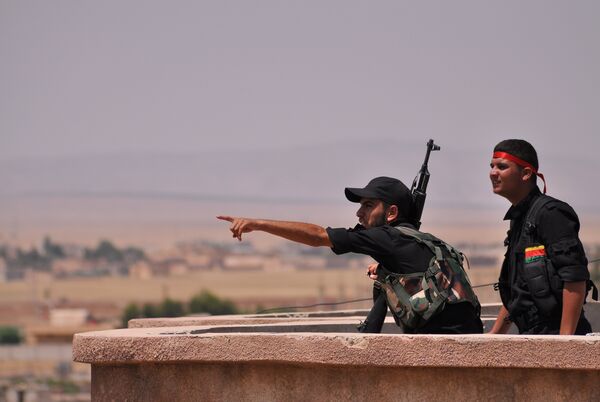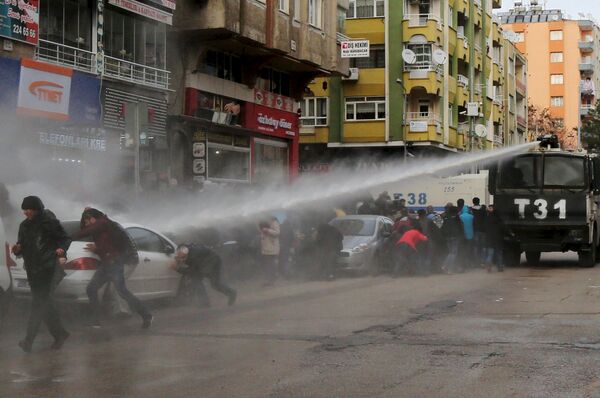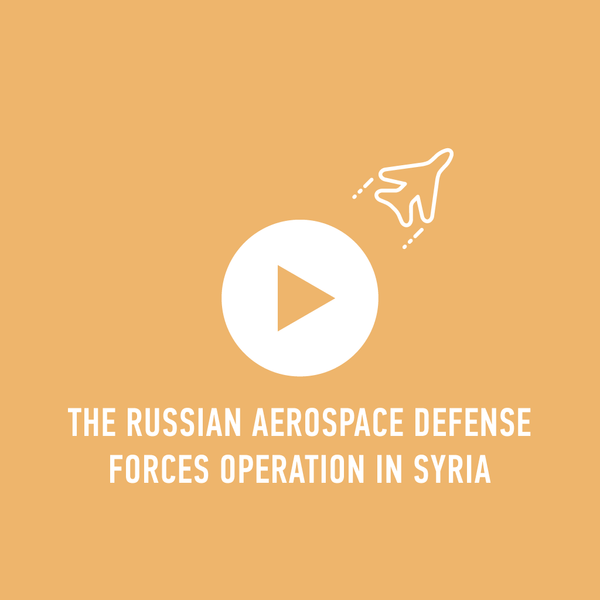The media outlet referred to the Moscow-led counterterrorism campaign as a "game changer," as well as a "major blow" to Ankara.
As soon as Russian planes flew on their first anti-Daesh missions, the Turkish leadership understood that their plans for Syria are no longer viable. "Establishing a no-fly zone in northern Syria is impossible. There will be no 120-kilometer-long and up to 20-kilometer-deep security zone on Turkey's border" with the war-torn Arab country, Deutschlandfunk noted.
Moscow's decision to launch a counterterrorism campaign following a formal request from Damascus "has rendered Erdogan's policy in Syria largely ineffective," the media outlet noted.

Russia's contacts with the Syrian Kurds make the situation even worse: for Ankara this amounts to "a nightmare followed by a nightmare."
Erdogan launched the operation after a two-year-long ceasefire collapsed in 2015 to pursue his own political agenda. He succeeded to an extent. The ruling Justice and Development Party (AKP), founded by Erdogan, scored a major victory in the snap parliamentary elections held in November. But this policy could backfire since many view the operation against PKK militants as a "was against the Kurds," the media outlet noted.

Russia launched its successful counterterrorism campaign in late September, while Turkey has been part of the US-led anti-Daesh coalition. However, Ankara has mostly focused its efforts on supporting rebels, who are fighting against forces loyal to Syrian President Bashar al-Assad, and tackling the Kurds.
In addition, the Turkish leadership has failed to secure its porous border with Syria, which Daesh has used to smuggle fighters, weapons and supplies to the battlefield. This has prompted many to question Ankara's stated commitment to fighting Daesh.




